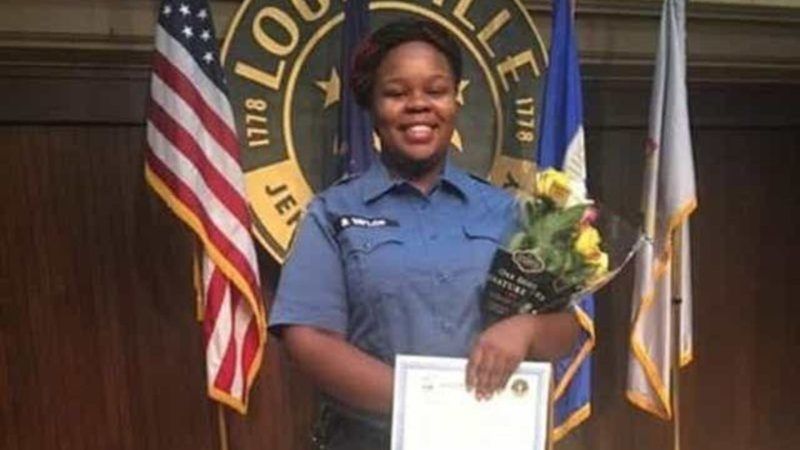Federal Judge Highlights the Hazards of Reckless Drug War Tactics
The ruling notes that Breonna Taylor’s death resulted from the "late-night, surprise manner of entry."

A judge recently dismissed a couple of the federal charges against two former Louisville, Kentucky, police officers who instigated the 2020 drug raid that killed Breonna Taylor. The ruling was by no means a vindication of the defendants, who still face several misdemeanor and felony charges, and it was an implicit indictment of the reckless tactics that led to Taylor's death.
That outcome, U.S. District Judge Charles Simpson emphasized, did not hinge on the validity of the search warrant, which federal prosecutors say was not supported by probable cause. Rather, Simpson said, Taylor's death resulted from "the late-night, surprise manner of entry"—an approach that drug warriors still favor despite many years of experience with its dangers.
Former Detective Joshua Jaynes wrote the affidavit supporting the warrant to search Taylor's apartment, and former Sgt. Kyle Meany approved it. An August 2022 federal indictment says they both knew that the affidavit "contained information that was false, misleading, and out-of-date"; that it "omitted material information"; and that "the officers lacked probable cause for the search."
Based on those allegations, Simpson let stand the charge that Jaynes and Meany aided and abetted a violation of Taylor's Fourth Amendment rights. But he said the facts did not support the claim that the offense involved the "use" of "a dangerous weapon" or that it resulted in Taylor's death, either of which would have dramatically increased the potential penalties.
Even if the search warrant had been valid, Simpson reasoned, the outcome would have been the same. By the government's own account, he said, the "key" factor was "the 'late night' surprise," which precipitated the exchange of gunfire that mortally wounded Taylor, a 26-year-old EMT.
Although they had a no-knock warrant, the three plainclothes officers who approached Taylor's apartment around 12:40 a.m. on a Friday in March 2020 banged on the door before smashing it open with a battering ram. They said they also announced themselves—a claim was contradicted by nearly all of Taylor's neighbors.
Taylor's boyfriend, Kenneth Walker, was in bed with her at the time. He later said he heard no announcement and had no idea that the men breaking into the apartment were police officers. Alarmed by the banging and the ensuing crash, he grabbed a handgun and fired a single shot at the intruders, striking one officer in the thigh.
The three cops responded with a hail of 32 bullets. Six rounds struck Taylor, who was unarmed and standing near Walker in a dark hallway.
A "midday, announced entry" would not have caused Walker "to believe he needed to fend off intruders," Simpson noted. He is by no means the first observer to highlight the hazards of breaking into people's homes to serve drug warrants, especially in the middle of the night.
In 2014, a Georgia SWAT team gravely injured a toddler with a flash-bang grenade after breaking into the room where he and his family were sleeping around 2 a.m. The cops were looking for a methamphetamine dealer who was not there.
Like the raid that killed Taylor, that horrifying incident involved an iffy search warrant affidavit. But that was not the only problem.
A local grand jury described a "hurried" and "sloppy" investigation that culminated in a paramilitary home invasion. That sort of aggressive approach, it said, "should be reserved for those cases where it is absolutely necessary," and "there should be no such thing as an 'emergency' in drug investigations."
The grand jurors noted the "inherent danger both to law enforcement officers and to innocent third parties in many of these situations." They specifically cited the risk that cops will be mistaken for robbers, with possibly lethal results.
That is what happened in Louisville six years later. It also has happened in many other places, including Prentiss, Mississippi; Burleson County, Texas; Chesapeake, Virginia; and Los Angeles County, California.
I could go on, but you get the point. Unfortunately, drug warriors do not.
© Copyright 2024 by Creators Syndicate Inc.


Show Comments (7)